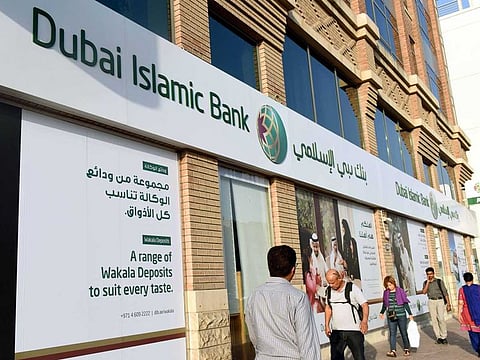Noor acquisition to increase effectiveness, boost Islamic banking
Mergers lead to increased effectiveness and provide potential for operating overseas

Dubai Islamic Bank’s (DIB) pending acquisition of Noor Bank, a move that would make it the fourth largest bank by assets in the UAE, would give a tremendous boost to the Islamic banking sector, while also making the bank capable of scaling up its businesses.
The acquisition could make the combined entity one of the largest Islamic banks, cornering around 10 per cent market size, with a total asset size of Dh275 billion, just shy of third-ranked Abu Dhabi Commercial Bank (ADCB). Dubai Islamic Bank could see its asset size increase by up to 22 per cent if it were to take over Noor Bank.
Across the region, mergers and acquisitions in the banking sector have been increasing. The Middle East and North Africa (Mena) region as a whole experienced a significant spike in deal value and total number of deals in 2018. Total deal values for the region in 2018 surged to $26.76 billion last year compared with $15.86 billion in 2017, an increase of 68.7 per cent.
The GCC’s high levels of development entail a need for large banking and institutions capable of carrying out financing operations consistent with the huge projects being taken up.
The UAE is recognised as sitting at the epicentre of the Islamic economy and this announcement [of acquisition], in addition to supporting the nation’s economic agenda, will further strengthen Dubai’s role as a global hub for Islamic finance, allowing greater investment and growth in a key sector.Gulf News
It goes without saying that mergers lead to increased effectiveness, reduced costs, and provide new potential for operating outside the country.
But the additional benefit from this acquisition would be the impact on the Islamic banking industry. The UAE remains a promising avenue for the growth of Islamic banking and finance, particularly given the substantial market share held by Islamic lenders in other core markets. For instance, in Malaysia, the share of Islamic banking is about 25-26 per cent, and in Kuwait it is about 40 per cent. This figure becomes significantly higher in Saudi Arabia at upwards of 50 per cent.
Findings of the 2018 Islamic Banking Index that Islamic banks as seen by UAE consumers as more trustworthy, more community-focused, and more financially sound than their conventional counterparts.
The UAE is recognised as sitting at the epicentre of the Islamic economy and this announcement, in addition to supporting the nation’s economic agenda, will further strengthen Dubai’s role as a global hub for Islamic finance, allowing greater investment and growth in a key sector.
DIB has consistently outperformed the market over last few years and this acquisition is set to enhance its influence, deliver increased market share and improve operational efficiencies.



